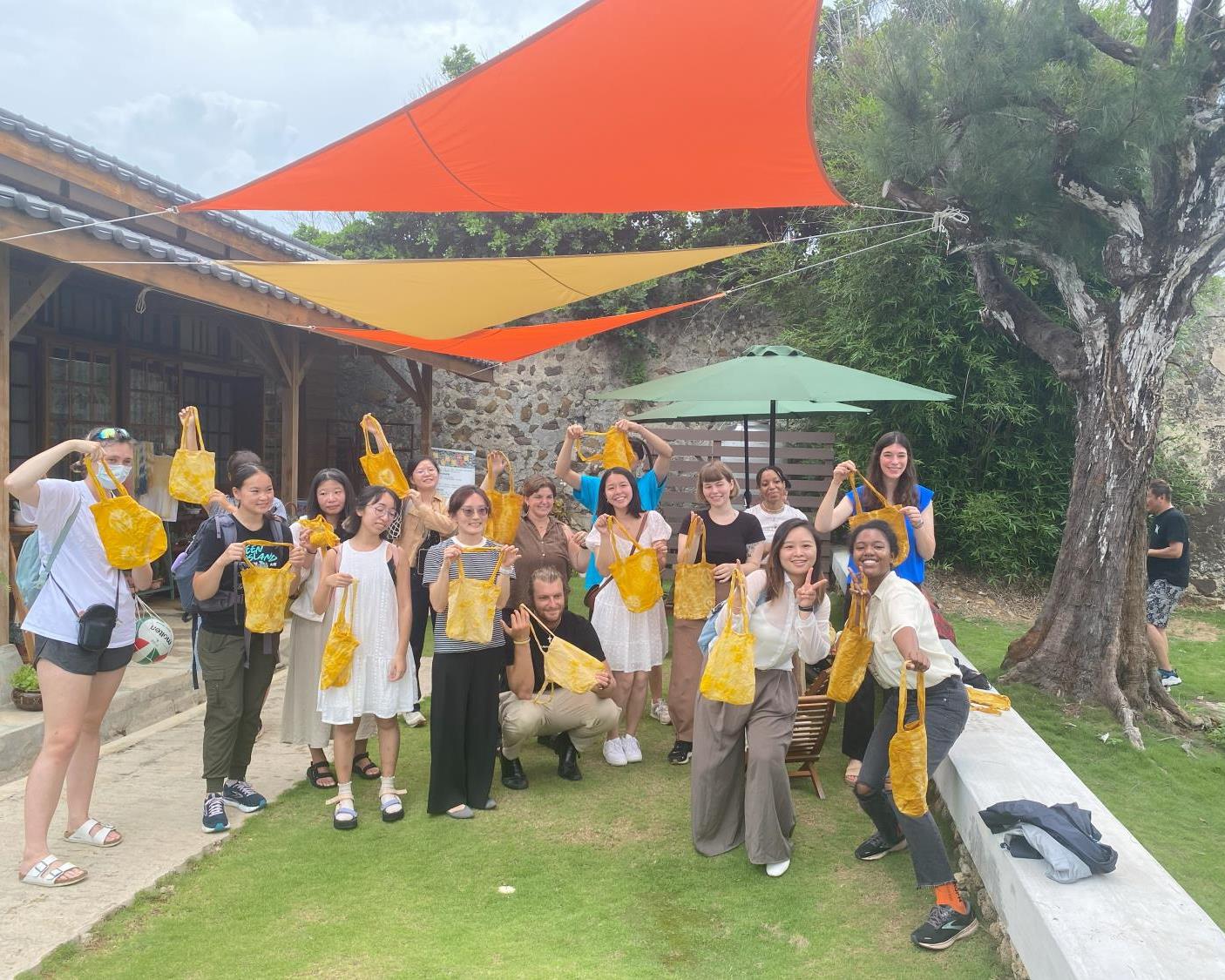
Home/Tag/
Penghu Chenggong Community Attracts Yoshitomo Nara with Local Culture
How successful is Penghu County Huxi Township Chenggong Community Development Association in Regional Revitalization? The proof is Mr. Yoshitomo Nara, one of Japan's "Three Musketeers of Contemporary Art," chose this small fishing village with less than 1,000 residents for his very first overseas residency and exhibition.
He not only selected the exhibition site personally but also arrived five days before the opening to curate the exhibition and stayed for five days after the opening. He expressed the reason: "Historically, I find it very interesting, and I am very touched that the building of the Japanese era has been preserved and is being actively used."
The Art Master Resides in the Village to Search for the Tiger God
The village chief, Mr. Hsiao Wen-jui, observed that although Mr. Yoshitomo was low-key during the residency, he was very interested in the residents, architecture, and historical architecture: "He visited the temples around the site almost every day and always looked for his favorite, the Tiger God." This Taoist deity, commonly seen in Taiwan's temples, originally served as the mount of the Mountain, the Earth, and the City God. Gradually, it has become the mount of other deities such as Wang Ye and Mazu with the protection function of the local temple, village, region, and city.
A master artist who appears in a small fishing village has become a living marketing textbook of "Tourism Revitalization" and a valuable example for all the organizations devoted to regional revitalization projects. However, Mr. Hsiao admits that in 2019, the first birth year of the "Regional Revitalization," all members of the association had no clues for scratch."
Fortunately, the 1992-founded association had been long involved in community building. Mr. Xiao Wen-rui, along with the Chairman Mr. Lee Yu-ren and the volunteer team, reached a consensus on five aspects: "People, Culture, Land, Scenery, and Production." They set up strategies and gradually implemented the goals for environmental, economic, and social sustainability.
The first step of the association was to take stock of its natural and human resources. The members first build up a financial foundation and then seek multiple developments to create a positive cycle. Very soon, the association decided to start the business with small trips that highlight local characteristics. Among them, the most representative trip is the traditional fishing experience "Triangle Trap Fishing."
Revitalizing Tourism: Experience Traditional Way of Fishing "Triangle Trap Fishing"
Mr. Xiao explained that "Triangle Trap Fishing " is a fish-catching technique with a triangular net. Fishermen first cross two large bamboo poles and sew a big net at the intersection and the tips of the bamboo poles, forming a large triangular net. Then the net is placed in shallow waters near the shore, and the fisherman will swing the bamboo net left and right to catch the fish. Since the fish get trapped in the net as the sea water sweeps in, this fishing tool is also called a "Mobile Stone Weir on the Sea."
The entire activity is about 2 hours from registration, explanation, changing into wading pants, and hands-on operation in the water, offering a unique experience unavailable elsewhere. Mr. Xiao additionally remarked that during the wintertime, the fishermen will use sesame oil to fry noodles, ginger, and brown sugar in a pot after landing. A bowl of sesame oil fried noodles with unique salty and sweet flavors is the perfect ending to the activity.
Ecological Trip of the Horseshoe Crab Village: A Popular Outdoor Classroom
After promoting the traditional "Triangle Trap Fishing ", the Association tries to reach the possibility of multiple trips and activities. They developed trips such as the Horseshoe Crab Village, marine debris art, oyster shell recycling, military tunnel experiences, and the Pigsty Café featuring local ingredients like Moghania Root and Glossogyne Tenuifolia in its dishes, as well as oven pizza.
Among them, the Horseshoe Crab Village Visiting is an example of educational and entertaining ecotourism. Horseshoe crab is an ancient marine creature that has existed for over 400 million years and is an important indicator of a clean ecosystem. In Taiwan, it can only be seen in four places. The association designed a trip based on two horseshoe crab burrows known as "Mother Crab" and "Father Crab," and combined it with a local legend of treasure hunting as a popular outdoor textbook.
For the beach clean-up activity and local cuisine, Mr. Xiao praised the Association for upholding its commitment to sustainability when designing its trip products. For example, the Pigsty café was originally a disused pigsty. The planning team renovated the foul-smelling drainage system, added cute pig illustrations everywhere, built a small wooden bridge, and then used leftover bricks and tiles to create a pizza oven inside. The café recreates a rural landscape that has become a popular check-in spot now.
A Small Community Thrives in Tourism and Passes to the Young Generation
Now, the Chenggong Community Development Association has been devoted to regional revitalization for nearly 4 years and has won the gold award of the county's "Community Space Creation Competition" for 3 consecutive years. Mr. Xiao believes that applying for the "Multi-Employment Promotion Program" of the Ministry of Labor in 2022 by adding 5 employees was a key to the subsequent work. "I particularly emphasized hiring young people because 'keeping talent in their familiar hometowns' is the most important indicator to me."
Mr. Xiao analyzed that since the pandemic, tourism has changed significantly. The deep cultural trips have been incorporated into young people's minds, so the trip content and standard operating procedure were all brainstormed by them.
"If a small community wants to develop unique tourism products, they must attract individual travelers who are interested in in-depth tours, rather than group travelers." Mr. Xiao emphasized, "To train the young generation how to inventory the resources and identify valuable assets, and then turn them into income, is the task of our generation."
Mr. Xiao thought residents of Penghu should be proud of their valuable cultural heritage. For example, except for the Tiger God and Triangle Trap Fishing, the nearly 300-year-old Chenggong Tianjun Temple is the only temple in Penghu. The elderly residents who are devoted to preserving local cultures discovered two precious couplets in the temple.
These couplets were requested by a friend of Mr. Wu Er-cong, the first Senator of the First Penghu Senate during the late Qing and early Republic period, from the second president of the Republic of China, Mr. Xu Shi-chang, and the political thinker, Mr. Liang Qichao, under the pretext of "Writing Couplets to Praise the Sacred."
The Official Facebook Page of Penghu County Huxi Township Chenggong Community Development Association
Wei Tzu-wei: Learning Solid Management Skills
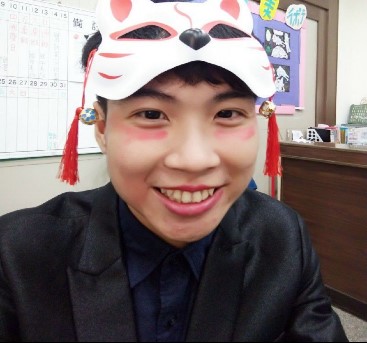 Mr. Wei Tzu-wei has a degree in economics from Tamkang University; However, he was forced to go back to his hometown due to COVID-19. After he joined to the Association as a project manager, he was finally able to apply what he learned. The 28-year-old man modestly claims that he has no grand ambitions, but Mr. Xiao Wen-rui praises Mr. Wei's achievements over the past three years, leading a team of six employees and handling administration, business, and planning tasks while efficiently managing scarce resources. For Mr. Wei, "Learning solid management skills is a core skill that will benefit my whole life." (Photo provided: Chenggong Community Development Association)
Mr. Wei Tzu-wei has a degree in economics from Tamkang University; However, he was forced to go back to his hometown due to COVID-19. After he joined to the Association as a project manager, he was finally able to apply what he learned. The 28-year-old man modestly claims that he has no grand ambitions, but Mr. Xiao Wen-rui praises Mr. Wei's achievements over the past three years, leading a team of six employees and handling administration, business, and planning tasks while efficiently managing scarce resources. For Mr. Wei, "Learning solid management skills is a core skill that will benefit my whole life." (Photo provided: Chenggong Community Development Association)
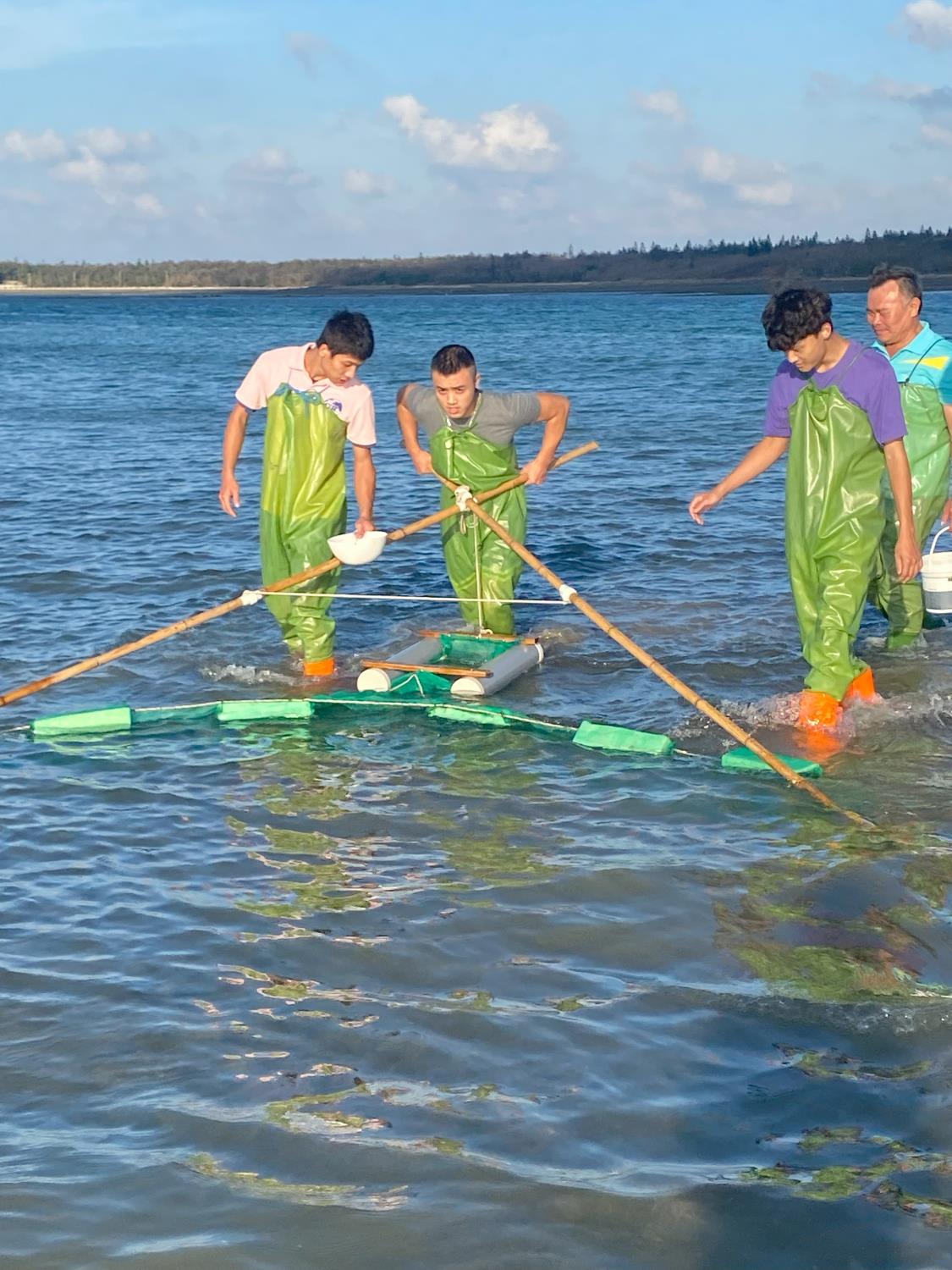
▲The "Triangle Trap Fishing" experience is a major highlight of the regional revitalization.
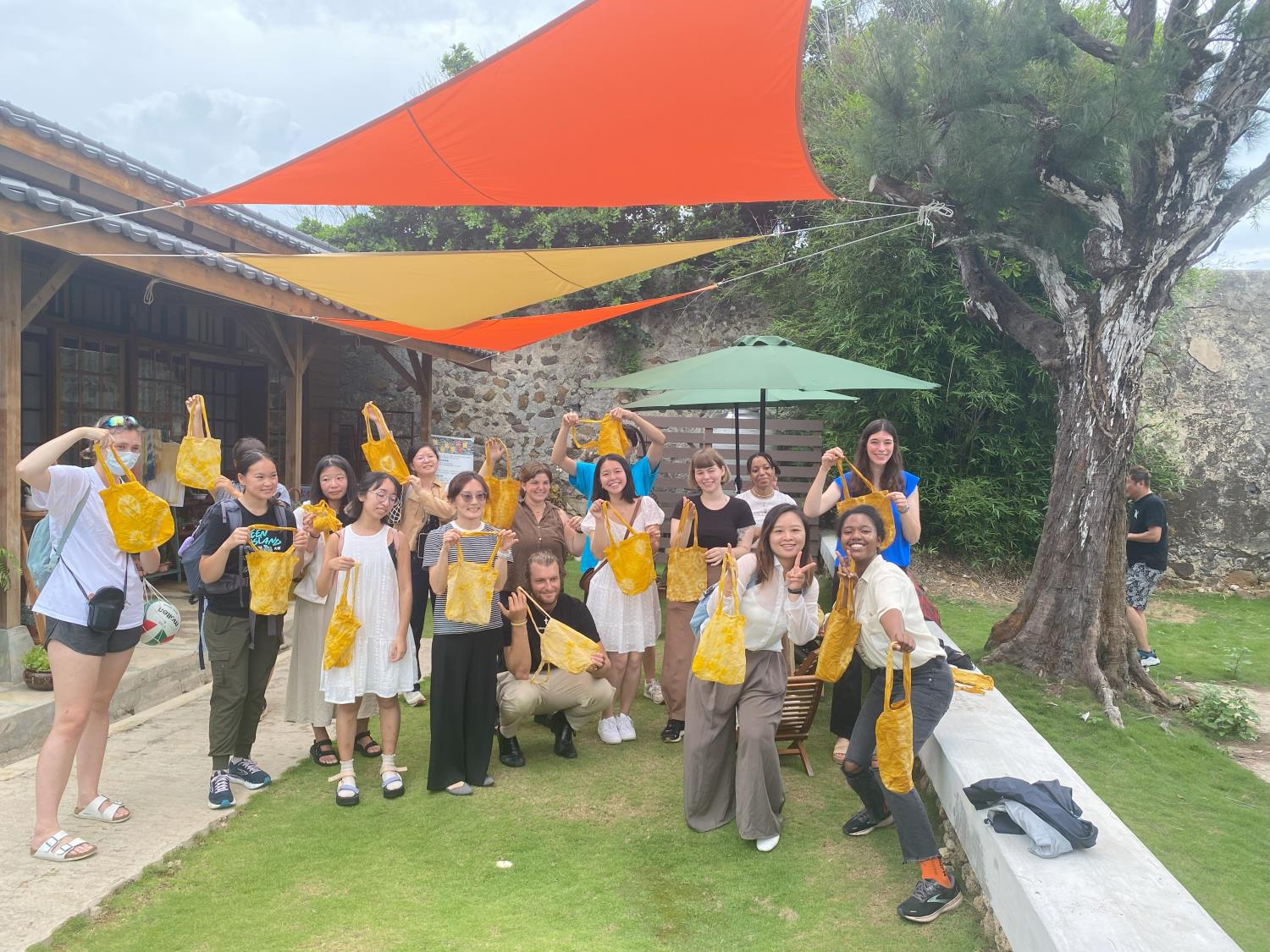
▲Utilizing local historical sites and adding innovative elements has attracted young tourists.
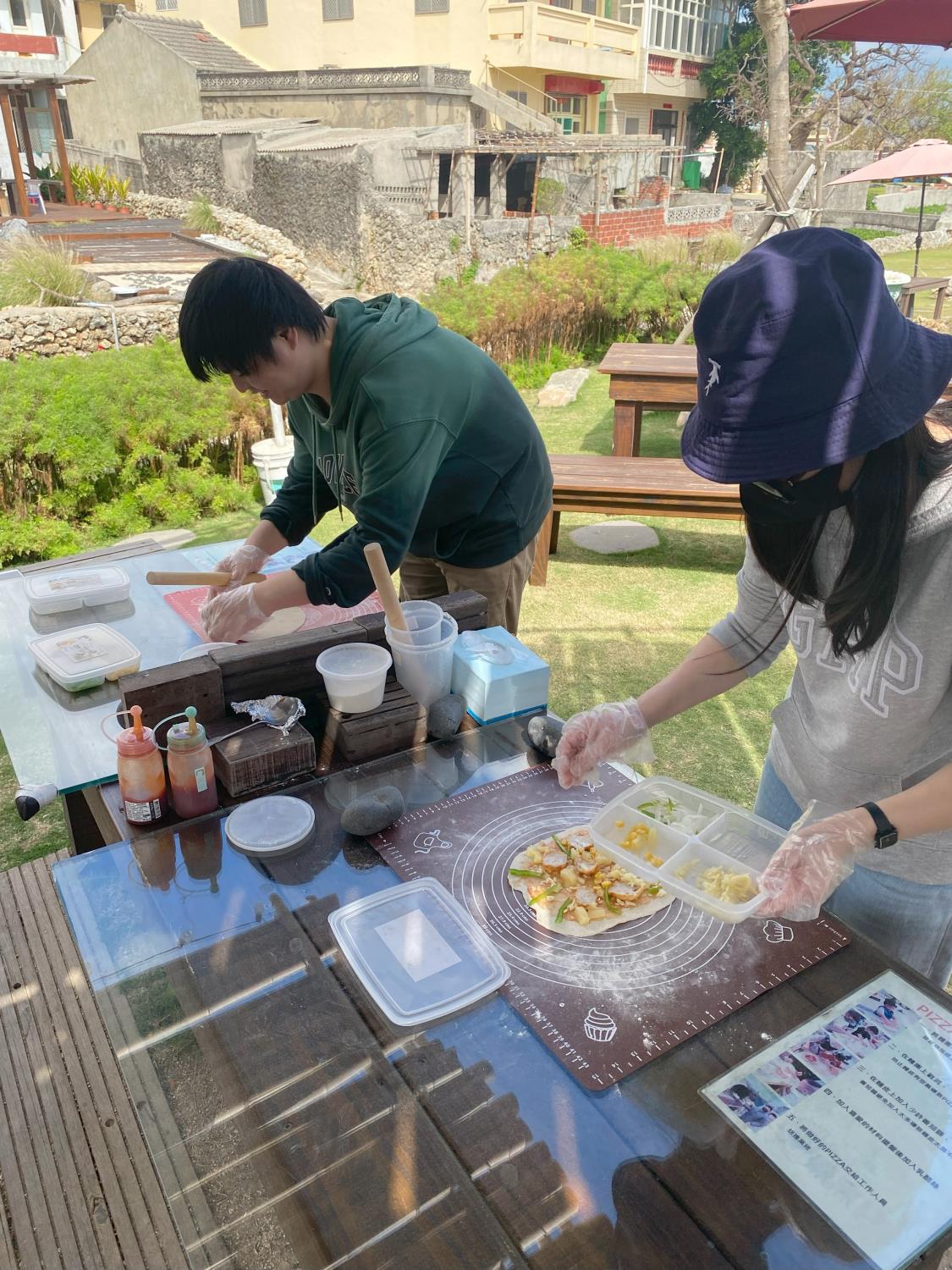
▲The trip was designed with multiple activities, including making and enjoying handmade pizza.
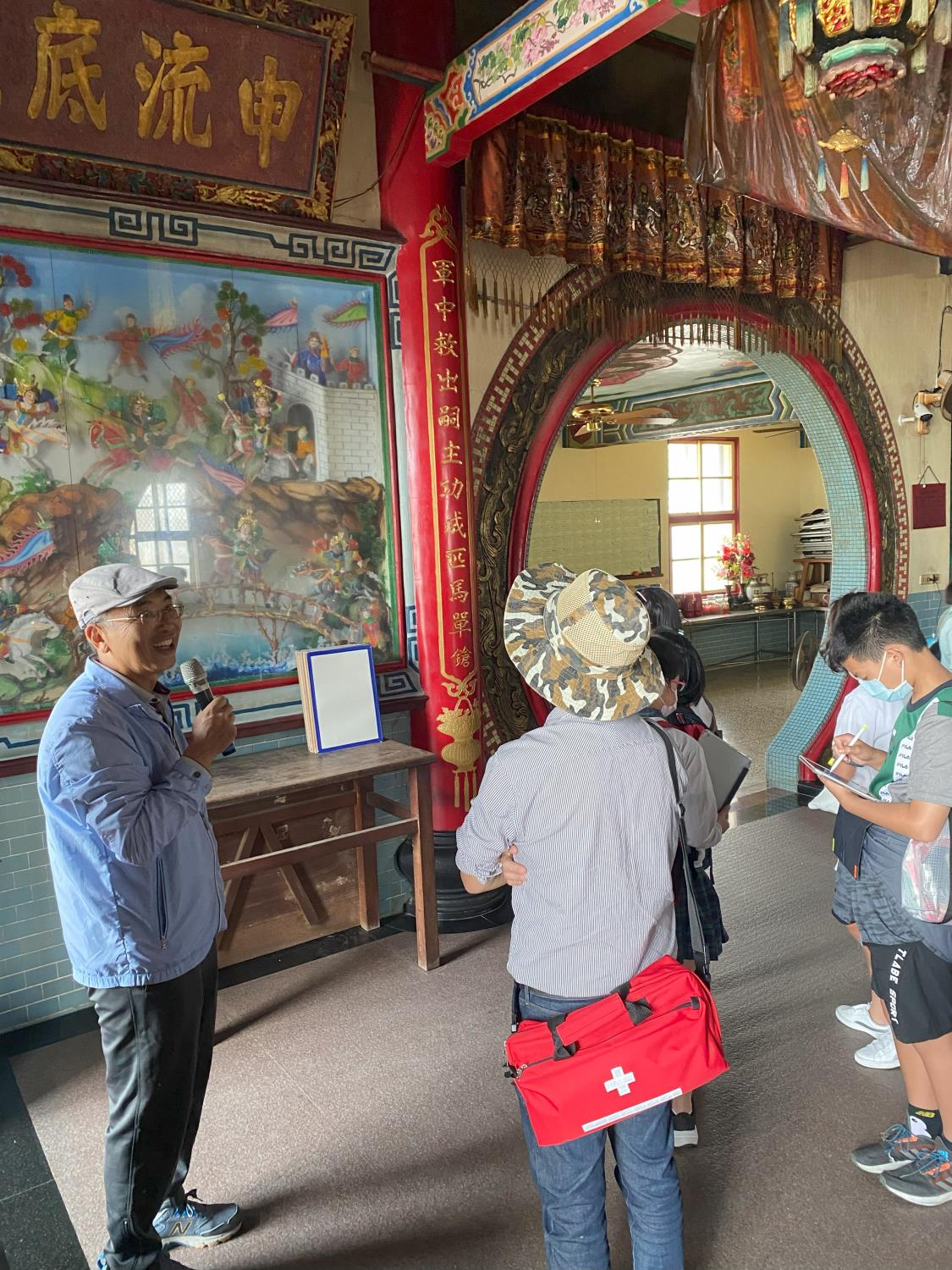
▲The temples of Huxi Township are rich in historical and cultural heritage, which greatly impressed Yoshitomo Nara. (Photo provided: Nanbangong Agri-Tourism Area)
Case Story: Multi-Employment Promotion Program
Interviewee: Penghu County Huxi Township Chenggong Community Development Association
![]()
This work is licensed under a Creative Commons Attribution-NoDerivatives 4.0 International License.
Please attribute this article to “Workforce Development Agency, Ministry of Labor.”
